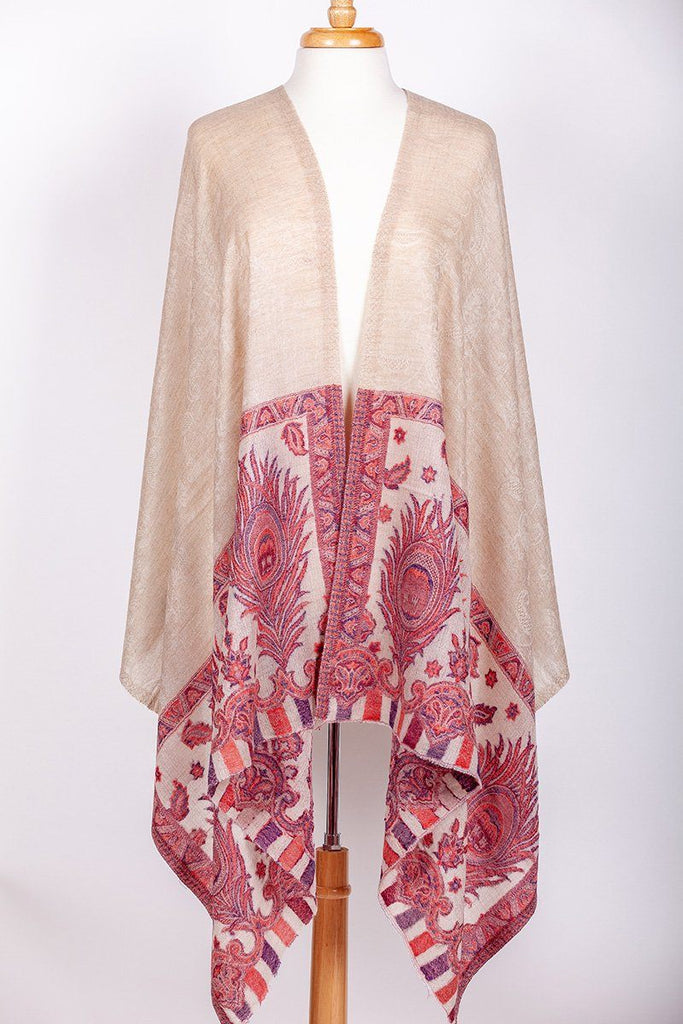Please notify us with 3 days of delivery if the item you received is damaged and/or need to be returned by sending an email to returns@theemperorslane.com
Each piece is unique as they are handwoven, hand embroidered, hand crafted and/or hand dyed. They also pride themselves on being environmentally friendly and not endorsing any child labor through their products.
The Story of Pashmina
Pashmina refers to a fine variant of spun cashmere, the animal-hair fibre forming the downy undercoat of the Changthangi goat. The word pashm means "wool" in Persian, but in Kashmir, pashm referred to the raw unspun wool of domesticated Changthangi goats. In common parlance today, pashmina may refer either to the material or to the variant of the Kashmir shawl that is made from it. Both generic cashmere and pashmina come from the same goat, but generic cashmere ranges from 12–21 microns in diameter, whereas pashmina refers only to those fibers that range from 12–16 microns.
The fabric and threads used to make these shawls and stoles are made from the finest Pashmina and Cashmere and has been sourced responsibly and directly from Northern regions of India. Their artisans have been practicing the art of weaving, embroidery and hand dying for decades and come from a long lineage of Mughal craftsman. No machinery is used in the process from start to finish.
All weaving is done by hand on looms built specifically to meet the standards of stringent quality. Each piece is unique as they are handwoven, hand embroidered, and hand dyed. They also pride themselves on being environmentally friendly and not endorsing any child labor through their products.
Pashmina accessories are known for their softness and warmth. Pure pashmina is hand woven and is rather gauzy as the thread cannot take high tension, so it is often mixed with silk or other wool to make it easier for weaving.
Related Products
You can update quantity at checkout or by clicking on the product name on this page.




